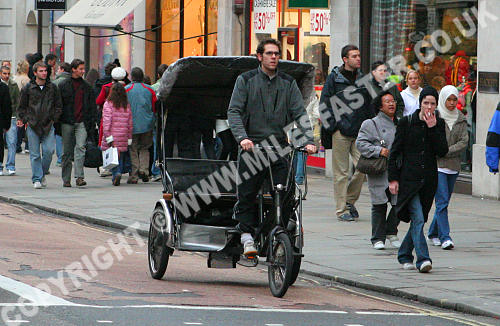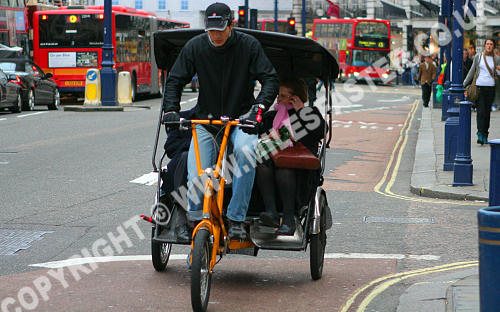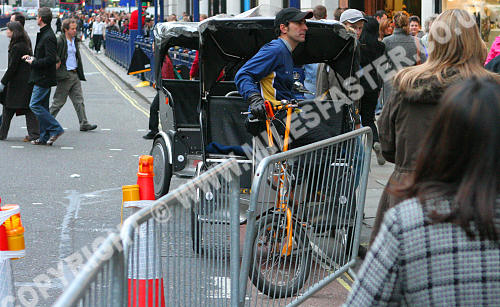They are also a focus of controversy. Legislation prevents anyone other than a licensed Taxi from plying for hire within London. However the Metropolitan Public Carriage Act 1869 had a loophole that was exploited by the pedicab operators who spotted that the legislation did not cover 'stage carriages'. A legal challenge to their right to ply for fare paying passengers failed in 2002.
Currently you will only see them in central London around Soho and theaterland mostly (Shaftesbury Avenue, Piccadilly Circus, Regent Street). In Canary Wharf they have been used to give free rides and funded by advertising. For some they are a practical form of short haul transport and for others simply a fun thing to ride on see London at the same time. While you can own and operate your pedicab, most of the riders in London hire their vehicle from a fleet operator, normally on a weekly basis (can be daily and monthly too), and then keep the fares they collect. Its not unusual for fares to differ wildly between riders who often will match fares to the type of passenger they have on board. In 2004 the London Pedicab Operators Association (LPOA) was formed to try and bring some uniformity and accepted code of practice to the riders and companies hiring the vehicles. This is a voluntary organisation and not all operators belong to it. One of the changes the LPOA brought about among their members was that the riders agree the fare before setting off on the ride and thus not springing a nasty large fare surprise on their passengers when it was to late to complain. Their riders also are required to carry ID.
In 2007 a polish company introduced a pedicab where the rider sits to the rear of the passengers rather than in the front as is usual. The LPOA have refused to allow the company to join its association claming this configuration is a safety risk as the riders view can be blocked.


